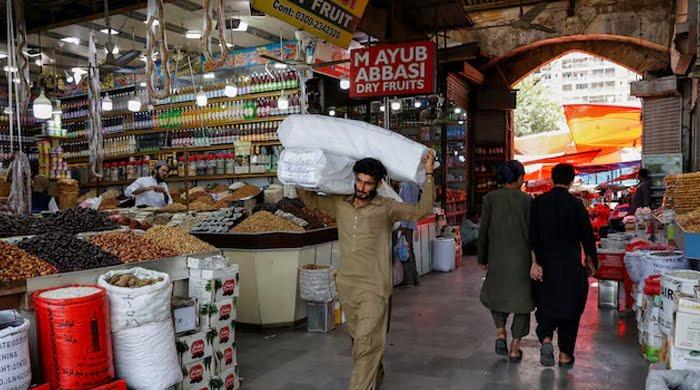Narendra Modi under pressure to 'reset' Kashmir, anti-Muslim policies
US Secretary of State Antony John Blinken recently expressed reservations over India’s suppression of dissent, discrimination against Muslims
August 03, 2021

Indian Prime Minister Narendra Modi’s government is under mounting pressure from the United States, European Union and the Organisation of Islamic Cooperation (OIC) to rethink and reset its ultra-Hindutva agenda on Kashmir and against Muslims and other minorities in the country.
During his recent two-day visit to India, US Secretary of State Antony John Blinken minced no words in expressing reservations on India’s suppression of dissent and its discrimination against Muslims, who are the country’s largest minority.
In a joint press conference with India’s foreign minister, Blinken said the US and India should "take seriously our responsibility to deliver freedom, equality and opportunity to all of our people", adding "we know that we must constantly do more on these fronts, and neither of us has achieved the ideals that we set for ourselves."
Afghanistan’s future: Lessons for India
Last week, the US President Joe Biden appointed Rashad Hussain as the Ambassador-at-Large for International Religious Freedom. Hussain is the first Muslim to be nominated to the key post.
Earlier in March, the US State Department's human rights report cited a number of abuses against Muslims and other minorities by Indian law enforcement agencies. The United Nations Human Rights Commissioner, Michelle Bachelet, also expressed her dismay at the death of 84-year-old Father Stan Swamy last month, while in custody in India.
Father Stan was a human rights defender and Jesuit priest in Mumbai and was popularly referred to as India’s oldest prisoner.
Separately, 16 members of European Parliament wrote a letter last week to the president of the European Commission on the atrocities in Indian-occupied Kashmir and urged it to implement the UN resolutions.
The letter states: “the EU should use all its leverage and tools to cooperate with our Indian and Pakistani partners to honor the pledge made to the Kashmiris by the international community and create an environment conducive to implementation of the United Nations resolutions.”
Read more: US State Secretary Antony Blinken makes veiled critique on Indian rights, democracy
The letter further laments that the Modi regime has blatantly misused new laws against the Kashmiri population which were enacted to prevent terrorism and separatism. The EU members also expressed concern over the deterioration in relations between two nuclear-armed neighbors – India and Pakistan.
Meanwhile, 626 of 751 members of the European Parliament introduced a resolution earlier this year against discrimination towards Muslims in the Citizenship Act in India.
Apart from that, the secretary general of OIC, in a meeting with Indian Ambassador to Saudi Arabia on July 5, conveyed the desire of the OIC general secretariat to dispatch a fact-finding delegation to the disputed territory of Jammu and Kashmir. This was seen as a rare move on the part of the OIC.
Furthermore, the Chinese military and diplomatic pressure over Ladakh, which borders China and Indian-occupied Kashmir, has added to Narendra Modi’s woes.
The press seems to be mounting on India to correct course, not just outside its borders but also inside.
Read more: FM Qureshi asks India to reconsider stance about Kashmir Premier League
Recently, Modi invited Kashmiri leaders for a summit in Delhi. The statements after the summit had a unanimous demand - restore Kashmir’s status and talk to Pakistan.
The question to ask now is: Will the Modi administration pay heed to the growing criticism?
Even a hawkish senior editor in India wrote last week that the Bharatiya Janata Party will have to reset its policies towards Muslims for internal peace, and for any chance of a breakthrough in talks with Afghan Taliban.











